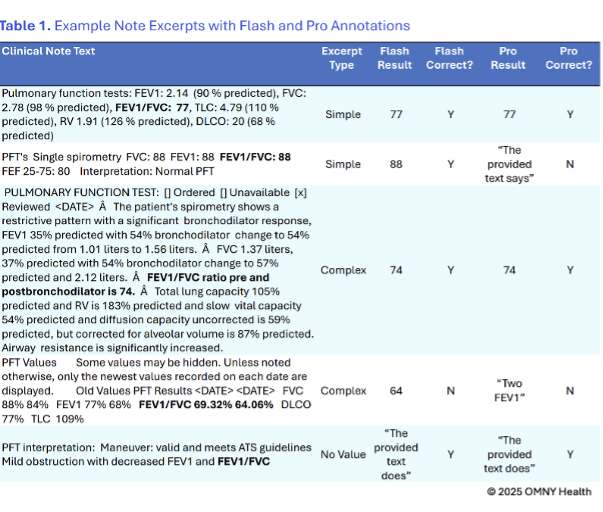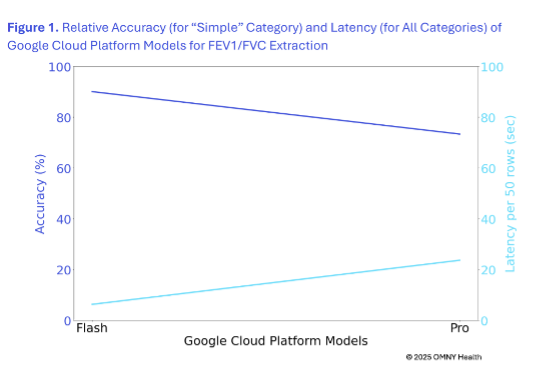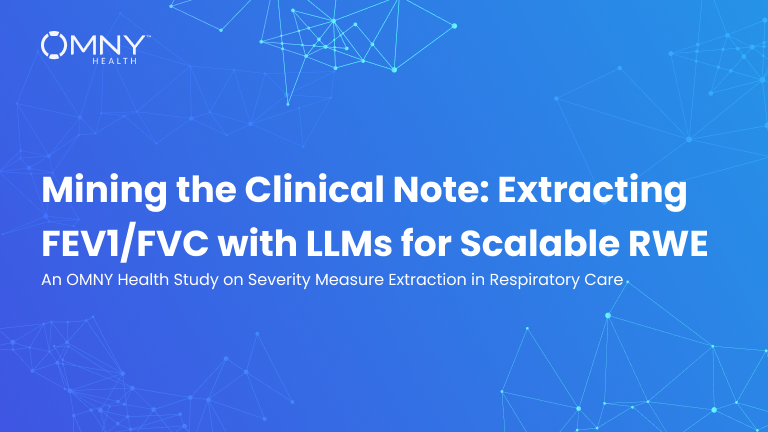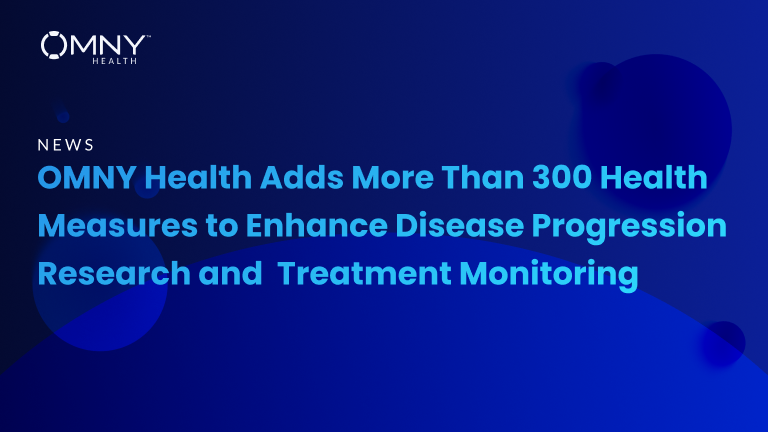The Company Now Offers Insights Across Ten Specialty Areas, Including Dermatology, Respiratory, Cardiovascular, Autoimmune, Gastroenterology, and Neurology
ATLANTA – May 8, 2025 – OMNY Health, the leading healthcare ecosystem for compliant real-world data insights at scale, today announced it has expanded its data network by adding more than 300 clinical assessment measures. These disease-specific measures include information derived from clinical severity indicators, surveys, and questionnaires, such as the Crohn’s Disease Activity Index (CDAI) and the Harvey Bradshaw index for Gastroenterology, as well as the Asthma Control Test and COPD Assessment Test (CAT) for Respiratory. These measures provide a more granular, real-world view of patient health, enhancing the ability to monitor disease progression and treatment impact.
The new measures incorporate data extracted and curated from structured and unstructured sources within OMNY Health’s extensive data pool of electronic health records (EHRs) to enhance the research and insights into medical specialties such as respiratory, cardiovascular, autoimmune, gastroenterology, neurology, and oncology. Adding these new pan-therapeutic measures builds on OMNY Health’s successful data strategy in dermatology, where it first demonstrated the value of leveraging disease-specific measures.
“For some time, OMNY Health has been seen as a dermatology data network, but with our network growth, we are moving beyond that and demonstrating the value of our solutions to the broader healthcare community,” said Dr. Mitesh Rao, CEO and Co-Founder of OMNY Health. “By leveling up research and making more information available across multiple specialties, OMNY Health enables teams to fill information gaps, accelerate research timelines, and make meaningful improvements to patient care.”
OMNY Health’s curated measures offering includes data on:
- Longitudinal disease progression, flare-ups, and treatment responses for conditions such as asthma, COPD, Crohn’s disease, ulcerative colitis, rheumatoid arthritis, lupus, epilepsy, and multiple sclerosis
- Real-world evidence on risk factors, medication adherence, and patient outcomes for conditions like heart failure and hypertension
- Post-surgical recovery tracking, rehabilitation outcomes, and treatment effectiveness for various conditions
By capturing a broader range of clinical information across a larger and diverse set of provider organizations, OMNY Health’s measures provide deeper and more representative insights than traditional disease-specific registries, positioning the company as a go-to source for researchers seeking information and data.
“Democratizing access to longitudinal data that has both breadth and depth has been a longstanding challenge for healthcare researchers like myself,” said Dr. T. Y. Alvin Liu, Inaugural Director of the James P. Gills Jr. MD and Heather Gills Artificial Intelligence Innovation Center at Johns Hopkins Medicine. “As AI begins to leave its mark on the healthcare industry, these new measures from OMNY come at a pivotal time, guaranteeing the highest quality of data to researchers and actionable information to healthcare executives. By taking previously untapped data sources and turning them into resources for better care, we can provide more precise and accurate treatments to patients across care specialties and unparalleled insights for executives to make decisions on a system level.”
OMNY Health’s release of more than 300 new health measures to its data ecosystem follows the company’s announcement in March of the availability of 4 billion unstructured clinical notes. This enabled the company to support its customers in unlocking previously hidden insights, which will drive a better understanding of patient journeys and unleash new innovations in treatment options. For more information on OMNY Health and its data ecosystem, please visit www.omnyhealth.com.
About OMNY Health
OMNY Health™ is a national data ecosystem connecting the world of healthcare to fuel partnerships that improve clinical outcomes and drive patient care. OMNY’s dynamic partnerships with specialty health networks, hospitals, academic medical centers, and integrated delivery networks span all fifty states and cover over 85 million patient lives. The company’s comprehensive data layer powers health tech companies to drive the next generation of innovation. The platform serves as a centralized resource for life sciences and healthcare provider groups to facilitate mutually-beneficial data sharing and research collaboration at scale, fueling innovation where patients need it the most. OMNY Health’s data network now reflects more than eight years of historical data encompassing more than 4 billion clinical notes from 1 billion encounters, 500,000+ providers across 200+ specialties – and is growing. To learn more about how OMNY Health transforms lives and drives patient care by connecting providers and life sciences companies through data, visit www.omnyhealth.com.
Media Contact
SolComms
Caroline Rueve
OMNY@solcomms.co
847-609-4055



